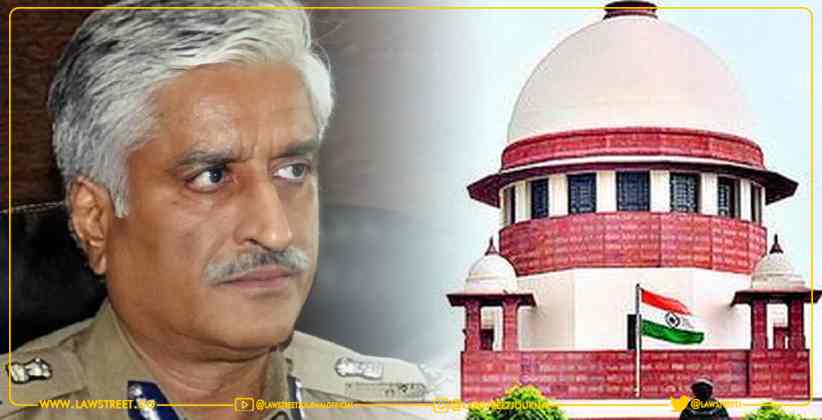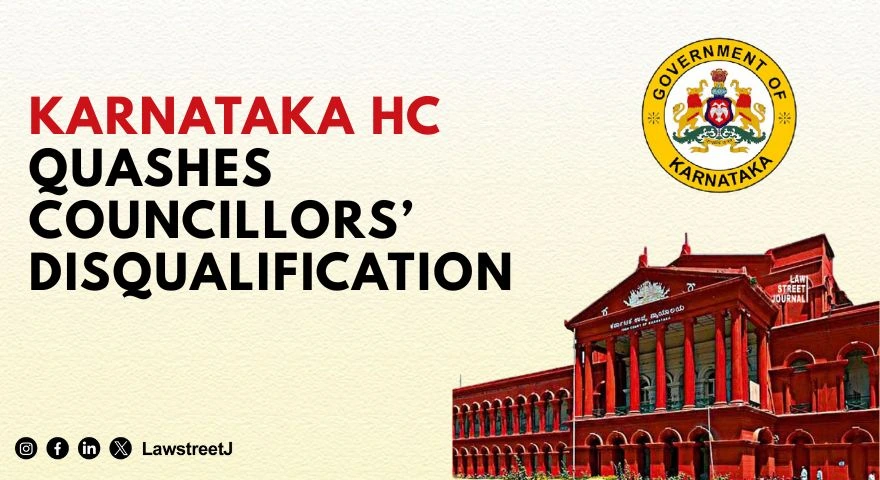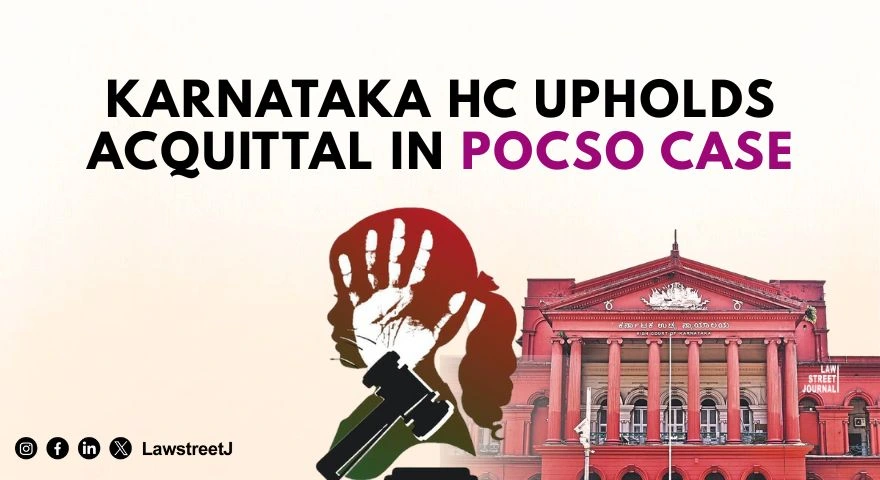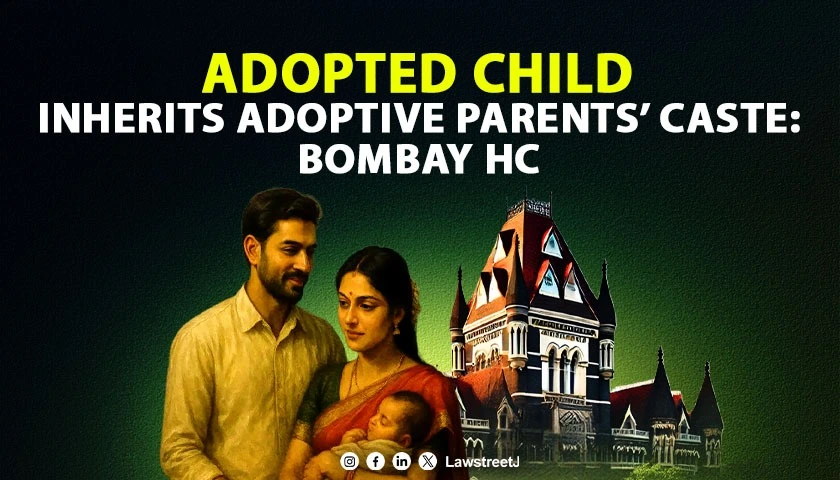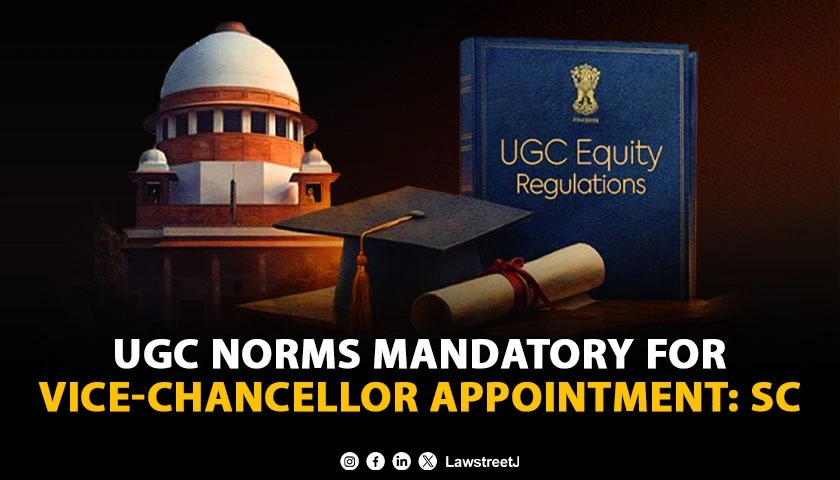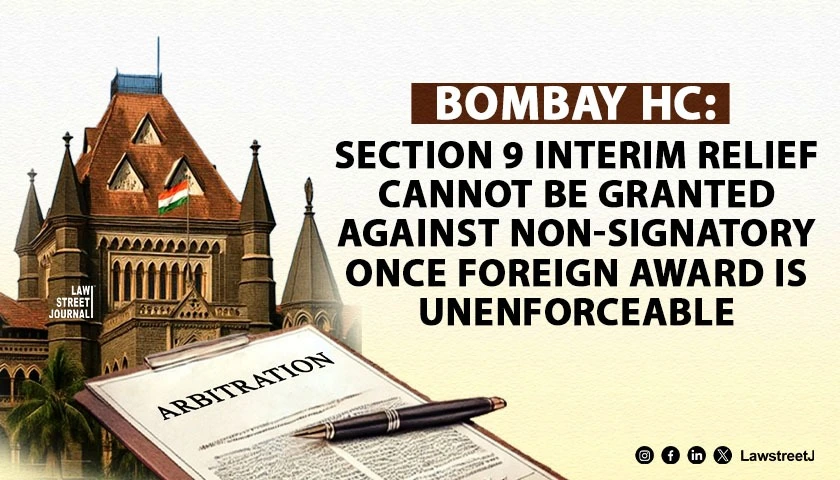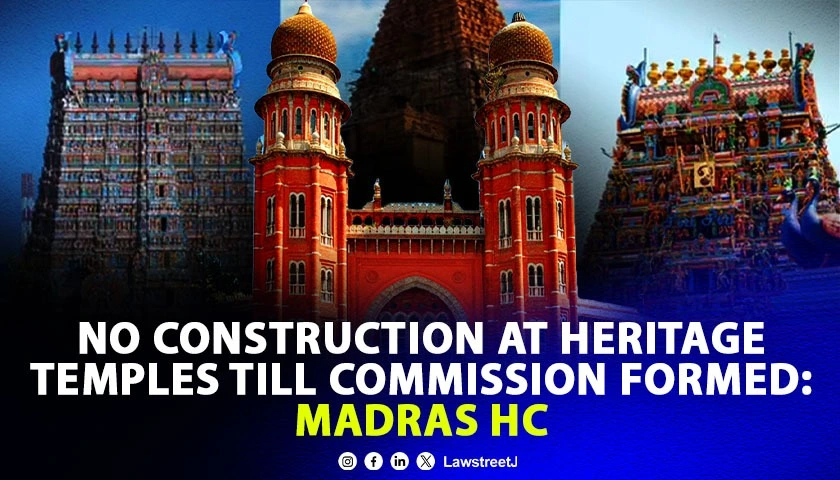On March 4, 2022, the Supreme Court expressed shock at an order by the Punjab and Haryana High Court awarding former Punjab Director General of Police (DGP) Sumedh Singh Saini protection from arrest in matters currently or likely to be filed against him in the future.
"This is unprecedented order. How can future course of action be stayed? It is shocking and three of us (judges) feel that it is unprecedented. This will require hearing," the Court said
The Hon'ble Court even mentioned that it will request the Chief Justice of the High Court to reassign the case to someone other than the judge who issued the interim order.
"We will request the High Court to dispose of the petition by another judge and not the same judge within 2 weeks. We request the Chief Justice to take it up himself or by any other judge and we will keep this matter pending (Special Leave Petition) in the (Supreme) Court," Chief Justice of India C.V Ramana said.
Senior Counsel Mukul Rohatgi who appeared on behalf of Saini, on caveat, submitted that there's a delay of 3.5 years in filing the petition after the impugned order was passed.
The Chief Justice of India however said, "Whatever it may be, you can't pass an order saying future cases also he can't be arrested? What is this? This is shocking and three of us feel it's an unprecedented order. We haven't seen this kind of order in our lives
The Advocate General also informed the Court that the order had been extended until April 20th the day before.
Initially, the Bench was inclined to issue a notice and list the case after four weeks. Mr Rohatgi, on the other hand, requested that the High Court be directed to dismiss Saini's writ suit, which seeks to transfer investigation of cases brought against him to the CBI.
The Bench then requested that the High Court resolve the dispute before it within two weeks. The Court did clarify, however, that the case will be considered by a different judge.
The Court has asked the Chief Justice to consider the case himself or to appoint a new judge. Meanwhile, the State's Special Leave Petition before the Supreme Court will continue to be heard.
The Bench was reviewing the State of Punjab's challenge to orders issued by the Punjab and Haryana High Court, in which the High Court granted Saini blanket anticipatory relief in all cases relating to his entire service tenure except one FIR-related occurrence. Last year, the High Court ordered a stay of arrest and investigation in all matters currently or likely to be filed against the accused until the Punjab General Election, which is scheduled for February 2022.
The present special leave petition filed by the State of Punjab challenged the following orders passed by the High Court:
- OCTOBER 11 , 2018 ORDER - Saini was granted the relief that if he is sought to be arrested in any case relating to an incident that occurred during his tenure as State Vigilance Head, Inspector General of Police, Intelligence, Punjab, or Director-General of Police Punjab, he will be given one-week advance notice before being arrested, allowing him to pursue any available remedies.
- SEPTEMBER 23, 2020 ORDER - The Punjab and Haryana High Court had ordered the Punjab State government to give former Director-General of Police (DGP) Sumedh Singh Saini one week's notice before arresting him (in case the state intends to do so in a criminal case against him) so that he can avail himself of the legal remedies available to him.
The Court ordered that the applicant's/protection petitioner's under the court's order dated 11.10.2018 will continue to apply to any occurrence relating to the applicant's/petitioner's entire service career.
However, the Court made an exemption and stated that this protection would not apply to the subject of a case FIR filed in Mohali under Sections 364[1], 201[2], 344,[3] 330[4], 219,[5] and 120-B[6] of the Indian Penal Code, to which Section 302[7] of the IPC was later added.
- The High Court's order dated September 10, 2021 directed the stay of arrest and investigation in all cases pending or likely to be filed against the accused until the General Election in the State of Punjab, which is scheduled for February 20, 2022, and also exempted the Respondent from personal appearance until February 20, 2022.
The Court also ordered a categorical stay on all further investigation related to the pending FIRS pending against him, as well as any other investigations, including those conducted by any commission constituted by the Punjab government, until February 2022. The Respondent's physical appearance in any court where a trial is pending will also be exempted until February 2022, according to the Court.
The Multan Murder Case, a Corruption Case, and a Sacrilege Case have all been filed against Saini by Punjab Police.
[1] Section 364 in The Indian Penal Code
364. Kidnapping or abducting in order to murder.Whoever kidnaps or abducts any person in order that such person may be murdered or may be so disposed of as to be put in danger of being murdered, shall be punished with 1[imprisonment for life] or rigorous imprisonment for a term which may extend to ten years, and shall also be liable to fine.
[2] Section 201 in The Indian Penal Code
201. Causing disappearance of evidence of offence, or giving false information to screen offender.Whoever, knowing or having reason to believe that an offence has been committed, causes any evidence of the commission of that offence to disappear, with the intention of screening the offender from legal punishment, or with that intention gives any information respecting the offence which he knows or believes to be false; if a capital offence.shall, if the offence which he knows or believes to have been committed is punishable with death, be punished with imprisonment of either description for a term which may extend to seven years, and shall also be liable to fine; if punishable with imprisonment for life.and if the offence is punishable with 1[imprisonment for life], or with imprisonment which may extend to ten years, shall be punished with imprisonment of either description for a term which may extend to three years, and shall also be liable to fine; if punishable with less than ten years imprisonment.and if the offence is punishable with imprisonment for any term not extending to ten years, shall be punished with imprisonment of the description provided for the offence, for a term which may extend to one-fourth part of the longest term of the imprisonment provided for the offence, or with fine, or with both.
[3] Section 344 in The Indian Penal Code
344. Wrongful confinement for ten or more days.Whoever wrongfully confines any person for ten days, or more, shall be punished with imprisonment of either description for a term which may extend to three years, and shall also be liable to fine.
[4] Section 330 in The Indian Penal Code
330. Voluntarily causing hurt to extort confession, or to compel restoration of property.Whoever voluntarily causes hurt for the purpose of extorting from the sufferer or from any person interested in the sufferer, any confession or any information which may lead to the detection of an offence or misconduct, or for the purpose of constraining the sufferer or any person interested in the sufferer to restore or to cause the restoration of any property or valuable security or to satisfy any claim or demand, or to give information which may lead to the restoration of any property or valuable security, shall be punished with imprisonment of either description for a term which may extend to seven years, and shall also be liable to fine
[5] Section 219 in The Indian Penal Code
219. Public servant in judicial proceeding corruptly making report, etc., contrary to law.Whoever, being a public servant, corruptly or maliciously makes or pronounces in any stage of a judicial proceeding, any report, order, verdict, or decision which he knows to be contrary to law, shall be punished with imprisonment of either description for a term which may extend to seven years, or with fine, or with both.
[6] Section 120B in The Indian Penal Code
1[120B. Punishment of criminal conspiracy.
(1) Whoever is a party to a criminal conspiracy to commit an offence punishable with death, 2[imprisonment for life] or rigorous imprisonment for a term of two years or upwards, shall, where no express provision is made in this Code for the punishment of such a conspiracy, be punished in the same manner as if he had abetted such offence.
(2) Whoever is a party to a criminal conspiracy other than a criminal conspiracy to commit an offence punishable as aforesaid shall be punished with imprisonment of either description for a term not exceeding six months, or with fine or with both.]
[7] Section 302 in The Indian Penal Code
302. Punishment for murder.Whoever commits murder shall be punished with death, or 1[imprisonment for life], and shall also be liable to fine.

